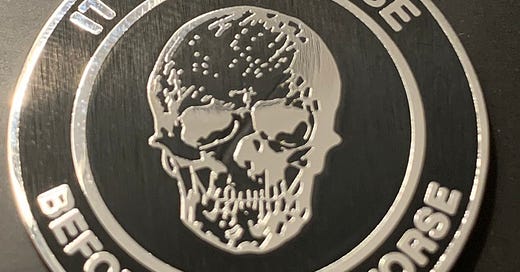If the first and ongoing questions are those related to sources, then the next question we have to turn to is what to do with those sources.
An ongoing series which goes under the hood for how to teach Christian Ethics. For paid subscribers (which you can fix here).
Where Are We Going? What Is The End of Action?
One of the key ways that you know that you’re moving from theology and into ethics is when the question of “What do you do?” comes knocking. It is one thing, as I will do on Wednesday morning this week, to talk about the contours of a doctrine of creation with my systematic theology class, and another thing entirely to ask what a watershed is for.
The two are related, theologically: to ask about something’s existence as a creation of God is to say that it exists as an object of divine intent, that it exists because of a God who imbues it with goodness, and that it exists with that goodness as a creaturely reality meant for flourishing.1 But while this tells us in the most basic sense what anything in creation is meant for, it doesn’t tell us yet about what it means to cultivate goodness, or how to distribute water, and whether water only has meaning relative to human concerns.
And so, before laying out various theories of how to talk about the end, the ultimate purpose, the telos of action, I write up on the board “You shall not steal.” For the writings under consideration will all agree that stealing is bad, but in what way it is bad makes a significant difference.
Keep reading with a 7-day free trial
Subscribe to Taking Off and Landing: Explorations in the Moral Life to keep reading this post and get 7 days of free access to the full post archives.



